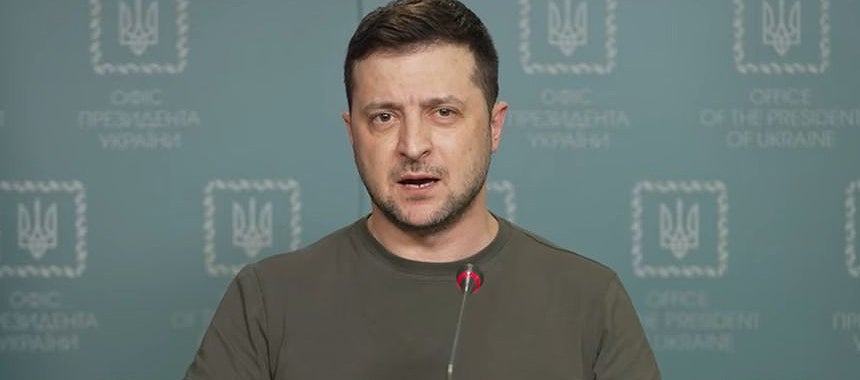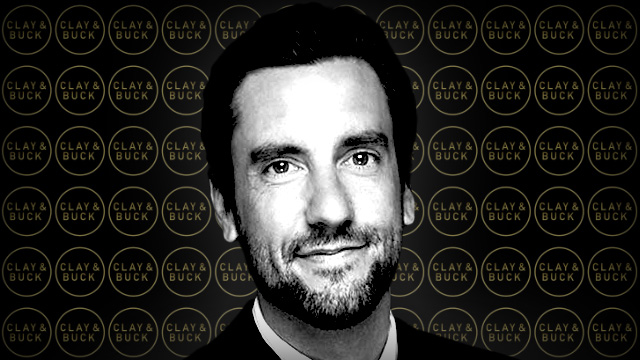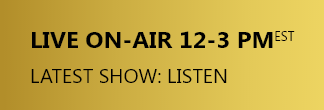Doug Wead
13 Dec 2021

What a pleasure to speak with this presidential historian, commentator, and author of over 30 books — whose latest bestseller, Inside Trump’s White House: The Real Story of His Presidency, is a must-read — thanks to his unprecedented access to the Trump White House:
RUSH: Mr. Wead, how are you, sir?
WEAD: [Laughs] I’m nervous.
RUSH: No, no — don’t be nervous! This is going to be like a mink glove, totally painless.
WEAD: Well, I’ve interviewed Presidents, but they made history. You’ve bent history.
RUSH: You’re very nice, I appreciate that. Let’s get started here. Your book is titled Inside Trump’s White House: The Real Story of His Presidency. This is what people want to know, because there is so much reporting of “chaos” and “confusion,” that nobody knows who’s doing what inside the White House. And Trump supporters instinctively know that’s got to be bogus for the most part — because so many of the policy changes that have happened are good. I know Trump liked your book. He’s tweeted great compliments about it. What is the reception so far that you’ve gotten?
WEAD: It’s been great from objective people. Some people didn’t like it even before the book came out. I guess they thought it was going to be fair, and that scared them. I had some death threats that involved a lot of detail, enough to make it kind of blood-curdling.
RUSH: Have you known Trump long?
WEAD: No. I met him for the first time on the campaign trail. I sat down with Ivanka and said, “In a couple hundred years they’re still going to be writing books about the Trump family, and they’re going to be doing theatrical performances. Whether you’re viewed hatefully, as the Borgias or the Medicis, or you’re viewed grandly, like the Rockefellers or the Kennedys, is all going to depend on primary sources, not anonymous sources. What you say and what the President says is what will endure. Somebody needs to capture that, and I’d like to do it.” So that’s how I got it going.

RUSH: Did you have to pass any kind of a test? By the way that’s a brilliant point, because all they’ve got is anonymous sources. You start with The New York Times, The Washington Post, cnn, and all the journalists who follow The New York Times, the vast majority of the reporting on the “outrageous” Trump comes from anonymous sources. You’re absolutely right. It matters to the Trumps what history is going to say. It matters to every prominent person, and they wish they could be in charge of it.
But it’s amazing that when Donald Trump is no longer President, when he’s not in public life anymore, and to a lesser extent his family, the media is not going to know what to do. I said the other day, “I don’t think they’re going to remember how to go back and ostensibly cover the news.” They’ve totally abandoned that now in their effort to destroy this man, and at some point he’ll be gone and they’ll have to go back to doing what they did, and they’re going to be bored silly.
WEAD: That’s what Jared says: “They’re going to come to miss him very, very deeply.” I agree with that. I asked the President, “Why me?” He said, “I’ve got chemistry with you.” I’ve noticed from him and through the children that all through his life he credits desire even more than competence. If somebody wants to do something and he can tell that, he’ll give them a chance to do it. Michael Beschloss came down to Mar-a-Lago right after he won the election. “He kissed my blank for a week,” he said. “But I didn’t feel the chemistry.” He said, “I feel chemistry with you.” So whatever that is, I’m very grateful for it.
RUSH: I don’t know if it’s so much chemistry as instincts. I think Trump can spot people who are out to get him, so to speak, and anybody from the establishment circles of history, scholarship, publishing, are going to be out to get him. So congratulations, you got the job. You spent two years in the White House. You had access. You were interviewing the Trump family. This is unbelievable access. How did that happen, beyond just being ascertained as somebody with a lot of desire? Your book has all kinds of until-now unreported stories. A lot of people like Michael Wolff said they were there. The stuff Wolff wrote is not even close to yours.
WEAD: I made a long list of the stories that Michael Wolff had written, and Bob Woodward, and others, and I was able to find the people who were in the room and they denied almost every single one. They said, “Nope, it didn’t happen.” I said, “You’re kidding. This is a famous story.” “Well, it never happened.” I found, Rush, that the real stories were better than the fake stories. So why does someone fake them?
RUSH: What surprised you? You had to have had some preconceptions of what you would find in there. What shocked you the most?
WEAD: A couple of things. One, I had worked on senior staff in the White House [under Bush Sr.], so I suspected going in that some of the apparent chaos was much more calculated and useful than some would think. What surprised me was that it was all much more calculated than I ever dreamed. It is said that “Out of chaos comes opportunity,” and it was true in just so many issues.
nato is a very good example of that. He just blew up nato, and the media, as you know, went crazy. He told me stories about the generals sitting there saying, “These are our friends, sir.” He would say, “If they’re our friends, why are they are taking our middle-class taxpayers’ dollars and building high-speed railways with them instead of defending themselves? Why do we have to pay for their airports and their education?” “Well, they’re our friends, sir.”
So what did Trump do? He blew the whole thing up, scared everybody, rebuilt nato, $100 billion they raised. His wall with Mexico would only cost $1.6 billion. He raised $100 billion, $40 billion of it new dollars. And nato is stronger than it’s ever been. The head of nato loves him. It’s opportunity out of chaos, but it was calculated. When he blew that whole thing up, he knew exactly what he was doing and where he was going.
RUSH: He did. And you’re so right about nato. In this latest trip, he was still hammering them about not paying their fair share, and they all are coming around. He hammered Angela Merkel. She makes a natural gas deal with Putin instead of her nato partners. Hammered her. [Laughs] You’re right, it’s reported by the media as chaos and out of control; it is reform of something that has been out of control for decades, nato.
WEAD: Yes. Jared Kushner described it to me as “breaking and resetting a bone that didn’t heal properly.” That is a painful process. Another example of that is the hostage-taking. When Trump came in, I have a description of his first day; he wanted to do everything. He’d waited his whole life for this moment. He wanted to defeat isis on the first day, and turn the economy around on the first day, and he was horrified by our policy towards hostages.
For 16 years, under Democrat and Republican Presidents, we kept silent. The federal government would bully the news media who would try to tell the stories of the hostages, and bully the families of the hostages. “We won’t help you if you don’t keep your mouth shut” — because of the good intentions. The thinking was, if you increase the profile of the hostage, you increase their value, and more hostages will be taken.
But what Trump found is the government was using that silence to hide the fact they weren’t doing anything to help these people or get them back. He said, “I’m going to get them back.” As a good businessman, he just started squeezing these countries. He brought 22 of the hostages home. [Turkey’s] President Erdogan made fun of him when he was trying to get [Pastor Andrew] Brunson home. Erdogan gave speeches ridiculing Trump saying, “What’s he trying to do? He’s not going to do this.” By the time a week was over, the President had almost taken Turkey off the cliff. Erdogan said, “Here, you can have him,” and gave up Andrew Brunson.
RUSH: You know this because you had access, but the story you just told I would wager that over half the American people don’t know. So how does Trump tell the success stories? How does he get them out? You talk about nato, turning tables on Erdogan, Angela Merkel. He’s going to get a Chinese trade deal, it’s going to happen. He’s redone nafta. He’s doing remarkably. Nobody knows it because all they’re talking about is Russia and collusion and Trump is illegitimate. How much of that distracts him and bothers him?

WEAD: I think it does. But another thing that surprised me is how positive they remain. Ivanka says, “I refuse to be bitter. I will not be bitter.” She said, “I can’t function unless I’m happy, so I choose to be happy.” And the President is that way. He’s ebullient and has a great sense of humor. He’ll say to Melania at dinner sometimes, “Melania, honey, isn’t this great, this journey I’ve taken you on? You wouldn’t be First Lady if it weren’t for me.” And she, who’s being persecuted for no other reason than just pure jealousy, will say, “Yeah, thanks a lot, thanks a lot.” [Laughs] Jared says that “Russian collusion” helped them turn the economy around. This is how they find a silver lining. He said, “If it weren’t for ‘Russian collusion’ when we started to deregulate, the media would have been all over us, but they were distracted by this ridiculous scandal.”
By the way, Rush, this was something that really surprised me. The Trump kids went all over the world those first two years, and heads of state would pull them aside and say, “Please, tell your father we’re so sorry about all this Russian collusion nonsense that he’s going through.” If you’re the President of France or the Prime Minister of the UK, you can’t wait two years for the Mueller Investigation. If you’re Bibi Netanyahu you pick up the phone, you call Mossad, and you say, “I just saw this article in The New York Times, what in the heck is going on? I’ve known the Trumps all my life. What is this about? I want to know by six p.m. tonight.” Because the future of your country, your economy, your security depends on knowing. If Trump is a Russian spy, that’s one of the greatest events of history. It’s absolutely ridiculous. They knew the answer. There are 120 intelligence agencies — the smallest of them is the Australian, and their budget, I think, is $164 million. All of them knew this was ludicrous.
RUSH: And they still do. But you make a good point: Trump has found a way to use media distraction to advance other aspects of his agenda. I’m glad you’re pointing it out. A lot of people imagine themselves in Trump’s position in terms of being assaulted every day in every which way imaginable — reputation, honor, integrity, honesty — and they don’t think they could put up with it. They think they would crumble, and they don’t know why Trump isn’t, and they can’t believe that he’s not.
WEAD: That’s right.
RUSH: So when they hear these stories of chaos in the White House, they may tend to believe them. But you’ve said, no, it’s organized chaos, and the productivity is continuing in there.
WEAD: Yes, it’s calculated. You know, history rates great Presidents based on 120 different criteria, among them are communication and intelligence, and the big one is the economy, and war and peace. He’s the first President in 40 years who hasn’t invaded somebody — Grenada, Panama, or wherever it may be, Bosnia, Libya. That’s peace. We take it for granted. And the prosperity is stunning. Everything that Hubert Humphrey or lbj or the social engineers ever wanted for the poorest of the poor in this country has come true under Trump. He’s got seven million unfilled jobs. That’s the population of Indiana. The economy is unbelievable. Peace and prosperity — that’s the gold standard for judging a President, and he’s done it.
RUSH: I’ve said that Trump is a one-off. In my memory in Presidential politics, there isn’t anyone like him. I think Teddy Roosevelt may come close, in terms of energy, constantly on the go, never resting. But as a historian, do you see any close precedent among Presidents for this unique personality of Trump, including the energy level, the tirelessness?
WEAD: I think you’re right. And Andrew Jackson, of course. I was one of the first to compare him to Andrew Jackson. The first six Presidents were all Brahmins — you had to be either from the same family, the two Adams Presidents, or you had to be a Virginia tobacco planter. But here came Jackson from the West. He had a violent temper. He fought with his own Senate. He fought with his own Party. He’s the guy who started meetings near the kitchen in the White House to get advice; that’s where the term “kitchen cabinet” came from. They wanted to impeach him over that. They said, “That’s illegal, he’s getting advice from people other than his own cabinet.” A lot of people compare Trump to Andrew Jackson.
What’s interesting, Rush, is a lot of people who study history compare him to Disraeli, the great British Prime Minister. Disraeli was a Jew and had no political following. It was pure ability, his ability to execute, that made him so popular with the British people. Some people say Trump doesn’t have a constituency and he’s not a politician, but he’s overturning the tables and breaking the dishes, restoring free markets and breaking the monopolies, as you said, like Teddy Roosevelt.
RUSH: The Trump characteristic that most people react to, pro and con, is his unique communication style. He tweets. He’s direct. He is not philosophical at all. He’s really not ideological, though his tendencies would tend to be ideologically to the right, but he doesn’t think of himself as a conservative. He may now, because he’s learned the truth of who liberals are. You describe him as a consistently good listener. When they talk about Trump’s tweets and his reactionary statements, a lot of people think Trump is not particularly smart, IQ-wise. He may be a successful businessman, they say, he’s made a lot of money, but in the way Washington defines political people as smart, Trump is thought not to be. You don’t agree with that at all, right?
WEAD: No, I don’t. Here’s why. A hundred percent of the world’s economists rejected his whole idea, his whole game plan, of what the gdp would be. They were all wrong. He was right. He saw something none of them could see. And they criticize all of these things he’s doing, Rush, but the great testament to his legacy is they’re not going to be undone. Do you think the next President is going to come in and abandon the Trump doctrine for bringing hostages home? No, they’re going to use that to the hilt. Are they going to refund the nato money to Germany and France and have a big signing ceremony at the White House so cnn can come in?
RUSH: Well, since you bring that up, it depends on who the Republicans nominate.
WEAD: [Laughs] There you go.
RUSH: I think it’s one of the greatest questions we could discuss: Is this Trump’s Party after he’s gone? I think there are a lot of Republicans, Doug, who are chomping at the bit to do a George H.W. Bush and start saying, “Now we’re going to be back to a kinder, gentler America.” I think there’s a Republican Party that’s filled with Mitt Romneys out there who want to go back to being what they think is civil and polite and all that. Because their objective is not to have policy successes like Trump. Their objective is to get along with the media. Their objective is to get along with the people they think run Washington.
WEAD: Well, you’re right and that’s very possible, but some things they’re going to have a hard time undoing, like moving the embassy back from Jerusalem. Think of that. Five Presidents promised it. George W. Bush said, “I will do it my first day in office.” And none of them did it. I asked Donald Trump about that: “Do you know why they changed?” He said, “I know why. As soon as I got in, I wanted to do it. Emmanuel Macron said, ‘You can’t do it. There will be a war in the Middle East if you do it.’ Erdogan said, ‘There will be a war.’ All the senators lined up to tell me. The State Department said, ‘You can’t do it.’ The goal is you want peace in the Middle East. The second goal is you want to move the embassy to Jerusalem which the Israelis had asked for all those years and American Presidents had promised. We wanted both of them. But previous Presidents had said to themselves, ‘Well, we can’t get peace if we move the embassy. So first let’s try to get peace.’”
RUSH: Well, we’ve never had peace.
WEAD: That’s his point! His point was they got neither one. “So, I said, okay, I’m going to move the embassy. At least I’ll get one, and who knows, maybe I’ll get the peace, too.” So that’s what it is. And there was no war.
RUSH: Of course, there wasn’t. That was just conventional wisdom that’s always wrong. It’s easier to come up with reasons not to do something than to be proactive and go ahead and do it. He’s not constrained by conventional wisdom at all.
WEAD: No, he’s not. [Laughs]
RUSH: What do you think Trump’s guiding principle or principles are?
WEAD: Well, I think he’s deeply religious in a quaint way. He said I could interview anybody I wanted and then at a certain point I asked him for a list of people. He gave back this list and [televangelist] Paula White was at the top. I flew to Florida and interviewed her. When he was a little boy his dad would take him to the Presbyterian church on Fifth Avenue and the pastor was Norman Vincent Peale. It was very moving to him, it was very positive. I think that’s where this whole positive thing comes around. And as you know, he’s a strict teetotaler. Eric Trump told me when he was five years old, he was going to go visit a neighbor in another apartment and his father came racing to the door. He looked down and pointed his finger and said, “No drugs, no smoking, and no drinking.” Five-year-old Eric said, “Okay, Pop.”
RUSH: Did you have access to Trump and the First Lady or any of the family in the residence?
WEAD: No, I was not in the private residence. I’ve been in it numerous times with other Presidents, but I wasn’t in it this time.
RUSH: Because I wonder when he sleeps.
WEAD: [Laughs]
RUSH: I know that he looks at sleep as an interruption. He flew to Afghanistan for three hours and came back and was playing golf when he got off the plane.
WEAD: Yes. Christmas 2018 he was going to go visit the troops in Iraq. It was a combat zone and they told the First Lady. She said, “I want to go.” The Secret Service sat her down and said, “You can’t go. Only a couple of times in history has the First Lady ever gone into a combat zone, and we have to have weeks in advance to prepare that.” She said, “If my husband is in danger, I will be in danger too. I’m going.” So they did. They left together on Christmas night 2018 and flew to Iraq to be with the troops.


It’s very interesting. My book is filled with pictures of them with their arms around each other. These pictures are readily available, but you never see them in the media. They don’t want to show them as human.
RUSH: No way. I know this is premature, but if you had to assign something as his legacy right now, what would it be?
WEAD: Peace and prosperity. It’s just as clear as a bell. It’s been, as I said, 40 years since we haven’t invaded somebody. Carter didn’t invade anybody but gave us a terrible economy. Rush, we’re so spoiled, we get peace and prosperity. We experience it. “Fine, thank you, and what else have you got to offer?” But it’s terrible when you don’t have that. This media would have loved Herbert Hoover. He was a gentleman, he was brilliant, an engineer, compassionate. He had set up Europe after World War I, but in America there was terrible poverty. 17 million unemployed. Hoovervilles without electricity or running water. People picking among the garbage to find their food. It’s a miserable thing to be in poverty. Comedians on TV say, “I wish there would be a recession.” It’s tempting to take for granted what has happened and to think it’s so easy. It’s not easy what has happened. It’s wonderful.
RUSH: Does he win in 2020?
WEAD: Boy, I don’t know. But if you’d have asked my advice, he’d have never been elected President anyway. So it sure beats anything that I can figure out. I really think he’s a rare visitation. That’s why I wanted to write this book.
RUSH: We’ve never had anybody like this guy in a position of political power, certainly not in our lifetimes. I don’t know anybody like him.
WEAD: Yes, Bismarck taught that politics is the art of the possible. And all the Presidents that I’ve known — and some of them I’ve known extremely well — and it’s true, politics is the art of the possible. They won’t campaign on curing cancer. They pick two or three little things and they’ll campaign on those and they’ll do them and then get re-elected.
But Donald Trump is a businessman. And as a businessman he taught in the book he wrote, The Art of the Deal, that you go after the most difficult problem first. Then you go after the next most difficult, right down the line. So he becomes President. In one of my first interviews with him he said, “Right over there, I sat down, Barack Obama and I, in those two chairs right where you’re looking at, we sat down. And I said, ‘Mr. President, what is the biggest problem we face right now?’ And President Obama said, ‘North Korea. You will have a war with North Korea during your term as President.’ I said to the President, ‘Well, have you called him?’ And he was stunned. He said, ‘No, I haven’t called him. He’s a dictator.’”
And then Trump looked at me in disbelief. He said, “That’s what he said: ‘No, I haven’t called him. He’s a dictator. I haven’t called him.’” And then Trump said to me, “Stupid.” So I guess as a businessman he had learned that if you’ve got a problem with somebody, you may hate their guts and they may hate your guts, but if you’ve got a problem you pick up the phone and call. And that’s what he did.
RUSH: Hardest problem first.
WEAD: Yes.
RUSH: Okay, one last thing. I know this is not in your purview, I know that it’s not part of your book, but you’ve been in there. How’s this impeachment thing affecting them, and how is it going to turn out?
WEAD: Well, it hurts, I’m sure, but they aren’t going to express that. I do believe that “Russian collusion” has inoculated them, and the fact that people called for his impeachment before there was “Russian collusion” or Ukraine, any of these things, that inoculates him. It makes it pretty empty, pretty hollow, and they know that. So they hurt for him, but they love their country. And this “America first” is not the evil thing it appears.
RUSH: Wait, how could it be evil?
WEAD: It was explained to me as the stewardess telling you if you’re accompanying a child, put your own oxygen mask on first and then assist your child. America can’t clean up the environment of the world and defend the world when its own middle class is descending into poverty.

RUSH: See, now you’ve lit a fire. America first — how in the world could anybody think that’s evil? That’s a strain of thinking so-called American nationalism is somehow bad. This is really what Trump is up against. A bunch of buffoons who are afraid of American greatness. It’s just asinine. I’m so happy he has not caved to it. I’m so happy that he has not seen fit to buckle to that. That view, to me, is just putrid.
WEAD: Lara Trump says, “We feel that within time we’ll be vindicated, and it may not even happen in our lifetime, but we know his motives are right and he’s right on the issues and he’s going to do what’s right.” Jared said, “All these things he’s doing with China, he will not see the benefit of it in our lifetime, but it had to be done.” Rush, it is the greatest transfer of wealth in world history outside of the Middle East, the wealth of the American middle class to China. It was sped up by the Bush family and the Clinton family back-to-back. Fifteen meetings during the Clintons’ time and then signed into law by George W. Bush and promoted by Obama. It has almost destroyed this country, and it’s taken a gutsy person to turn it around. But that’s why the media — who are owned by these monopolistic companies with their own deals with China — are going after him as hard and as fast as they can.
RUSH: That is absolutely true, and he articulates that in his own way. If he would say it the way you’ve said it, that our trade relations and our foreign policy with China represent the greatest transfer of wealth from the American middle class to China, that would get people’s attention. And if you still have access maybe you could suggest that that become part of his repertoire. That is powerful because it’s true, and that’s why it would work.
I appreciate your time. You offer a perspective here that is unlike anything else that’s out there on this guy. Congratulations, it’s well done.
WEAD: Thank you very much, Rush. And congratulations on bending history. It’s pretty wonderful.
RUSH: I’ll remember that. I’m going to put that in my own repertoire of braggadocious things to say I’ve done. [Laughs] Thanks, Doug, very much.
+ LIMBAUGH eLETTER EXTRA
EXCLUSIVE: Click here for a special selection from Doug Wead’s fascinating book, Inside Trump’s White House: The Real Story of His Presidency.
Editor’s Note: This interview has been lightly edited for space and clarity.
First and last photo courtesy of Doug Wead; Trump blue tie photo ©2020 Shutterstock; Both photos of Donald and Melania Trump ©2020 Andrew Harnik/AP/Shutterstock
Recent Stories
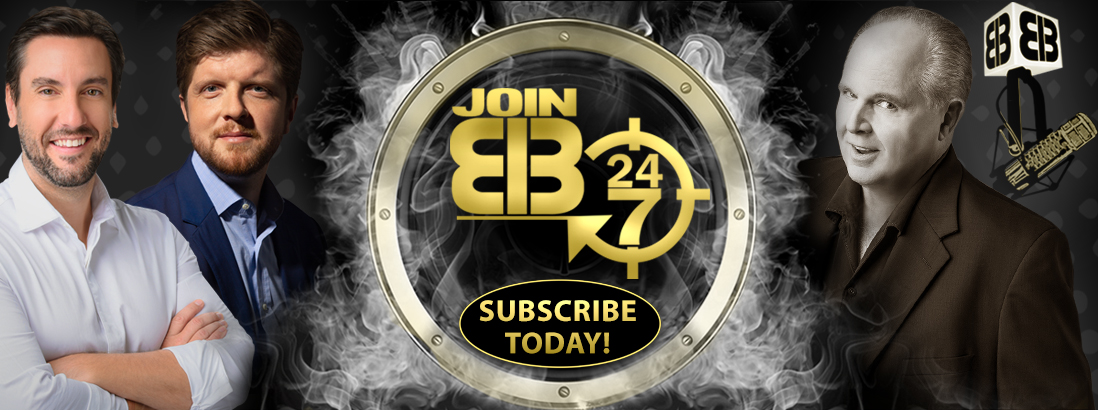
De Blasio Imposes Vaccine Passport Mandate In NYC test
This is an excerpt that Jaime updated. ffffffffffff
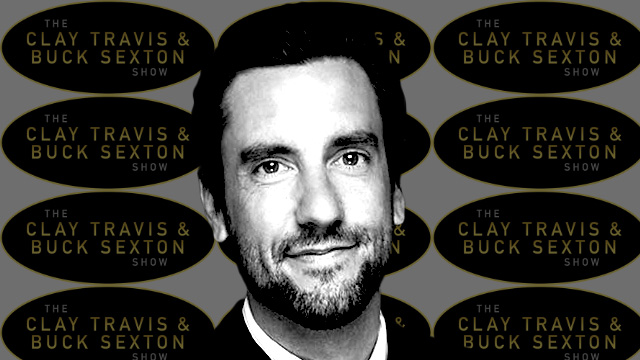
Buck Draws Heat For Speaking Truth About Simone Biles
I just wanted to establish what the current president was saying back on ABC News in March to George Stephanopoulos about his feelings on Governor Cuomo.


